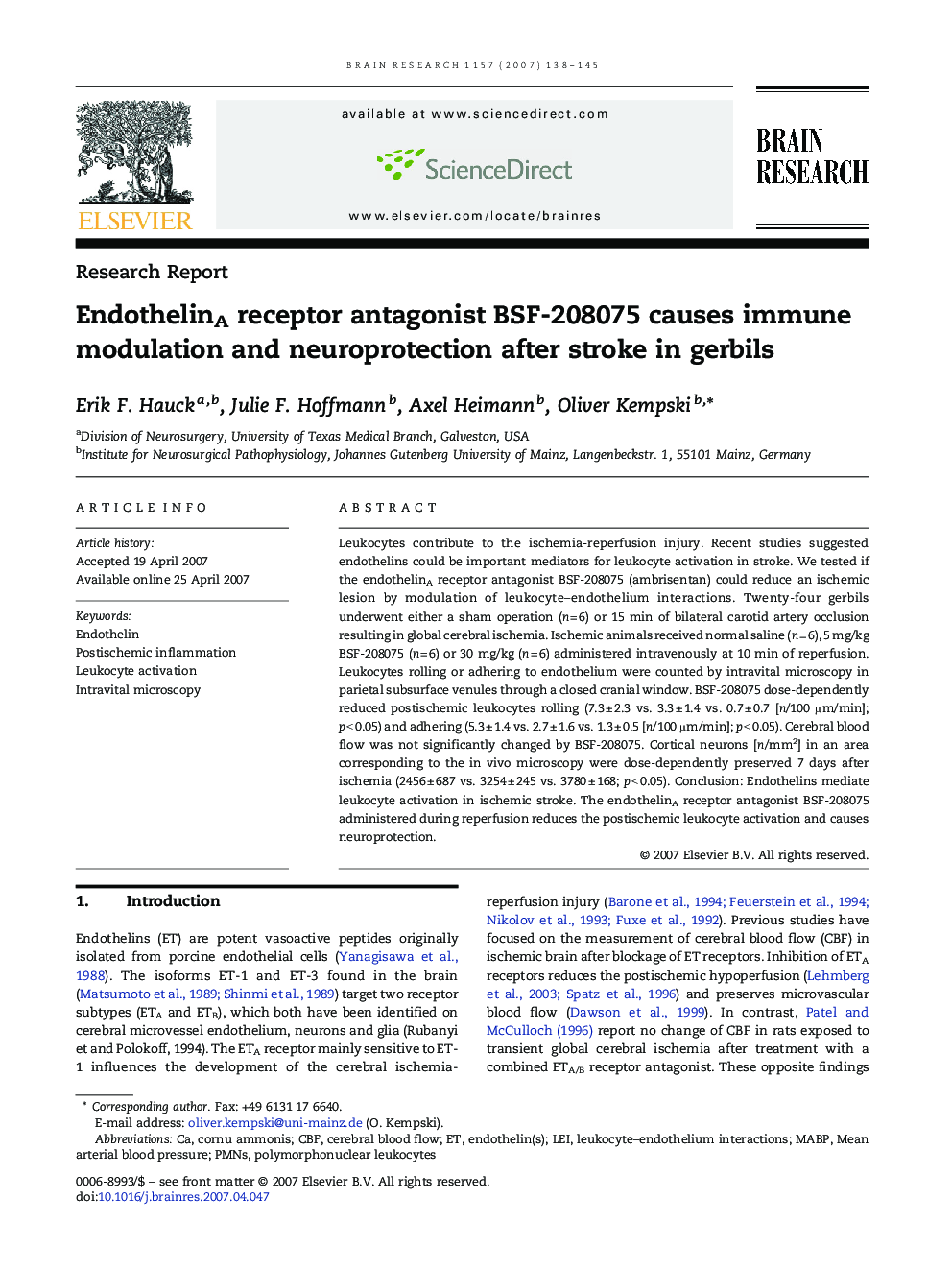| Article ID | Journal | Published Year | Pages | File Type |
|---|---|---|---|---|
| 4330949 | Brain Research | 2007 | 8 Pages |
Leukocytes contribute to the ischemia-reperfusion injury. Recent studies suggested endothelins could be important mediators for leukocyte activation in stroke. We tested if the endothelinA receptor antagonist BSF-208075 (ambrisentan) could reduce an ischemic lesion by modulation of leukocyte–endothelium interactions. Twenty-four gerbils underwent either a sham operation (n = 6) or 15 min of bilateral carotid artery occlusion resulting in global cerebral ischemia. Ischemic animals received normal saline (n = 6), 5 mg/kg BSF-208075 (n = 6) or 30 mg/kg (n = 6) administered intravenously at 10 min of reperfusion. Leukocytes rolling or adhering to endothelium were counted by intravital microscopy in parietal subsurface venules through a closed cranial window. BSF-208075 dose-dependently reduced postischemic leukocytes rolling (7.3 ± 2.3 vs. 3.3 ± 1.4 vs. 0.7 ± 0.7 [n/100 μm/min]; p < 0.05) and adhering (5.3 ± 1.4 vs. 2.7 ± 1.6 vs. 1.3 ± 0.5 [n/100 μm/min]; p < 0.05). Cerebral blood flow was not significantly changed by BSF-208075. Cortical neurons [n/mm2] in an area corresponding to the in vivo microscopy were dose-dependently preserved 7 days after ischemia (2456 ± 687 vs. 3254 ± 245 vs. 3780 ± 168; p < 0.05). Conclusion: Endothelins mediate leukocyte activation in ischemic stroke. The endothelinA receptor antagonist BSF-208075 administered during reperfusion reduces the postischemic leukocyte activation and causes neuroprotection.
